Recorded Webinars
2024 Capacity Building Webinar Series
An Introduction to CBPR and its Use in ACF Research
Critical Research Design and QCM
Developing a Community Engaged Research Agenda
Equity & Inclusion Language for Community Engagement
Community Engagement Approaches
2023 CER Annual Conference
The Role of Community-Engaged Research in Advancing Equity in Service
Community-Engaged Research in Early Care & Education
Community-Engaged Research in Economic Mobility and Poverty Alleviation
Using Data and Research to Advance Equity and Improve Services for African American Children, Families, and Workforce
Community-Engaged Research in Fatherhood
2022 CER Annual Conference
National African American Child & Family Research Center Conference: Day 1
Fatherhood Town Hall
Concurrent Session A | Authentic Collaboration: Public Benefits, Participatory Research And Advocacy.
Concurrent Session B | Early Education: Black Children’s Access, Experiences, and Outcomes.
Concurrent Session C | Early Care: An Exploration of Linkages Between Employment, Wages, and Child Care Access for Black Families to Inform Child Care Policy
Concurrent Session D | Fatherhood/Family Dynamics
2022 Capacity Building Webinar Series
An Overview of Fatherhood Research and TANF Connections
Populations Living in Rural Areas
Community Conversations
MS Washington County 2022 MAY 18
AL Macon County 2022 MAY 31
GA Troup County 2022 MAY 03
GA Greene County 2022 APR 09
Subscribe Now
Learn more about how we are advancing the health equity of African American children and their families by subscribing to our monthly newsletter.


